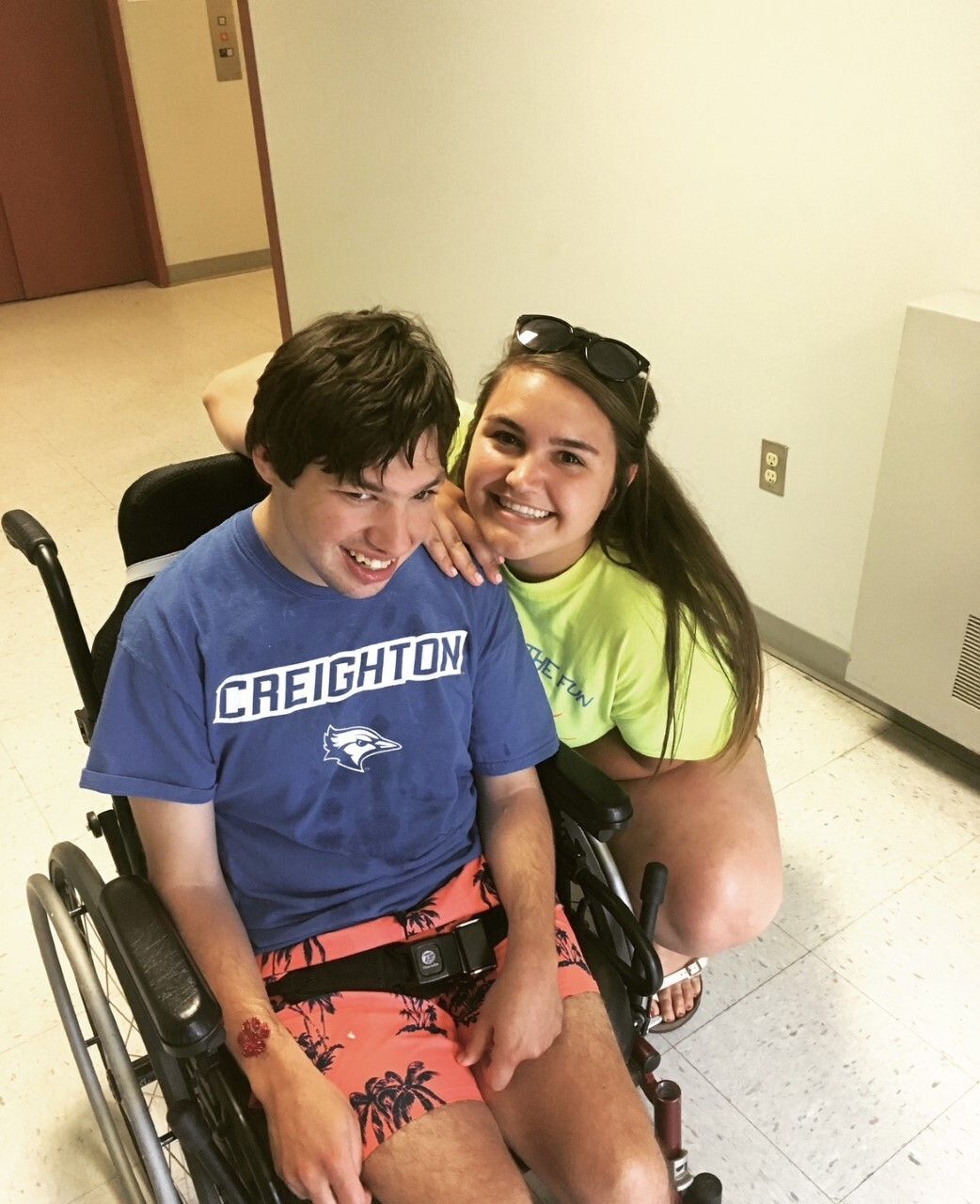
I’m parked outside of the Capitol, rereading my testimony for today’s hearing of LB 424. I’ve read through it at least a dozen times today but I decide to read it once more for good measure, unsure if I’m looking for grammatical errors or an excuse not to walk in. Brad’s voice echoes in the back of my mind, I don’t need to have all the answers, I just need to answer why accessible housing matters.
I think of my brother and the families I serve, reminding myself that not everyone has the same perspective. I’m sure there were moments that automatic doors and wide doorways didn’t cross my mind, days when I didn’t think twice when there wasn’t a ramp or curb cuts from the parking lot. I remind myself to be patient and give grace, because the reality is, accessibility doesn’t affect you until it affects you. I sit nervously in front of a committee that doesn’t know me, they are a just few representing the many and all I can do is give them a moment to step into my world to see how big the housing problem is.
“We talk about family they could stay with, or applying for Section 8, and scour apartment complexes to see if there are any accessible units on the ground floor, but eventually I come to my last resort, which are calls to the shelters in Omaha.” During my testimony I give them insight on my work, sharing with them the grief I experience when I tell a family I don’t know where to turn. It doesn’t matter how many times I have that conversation; it doesn’t seem to get any easier. Although this problem hasn’t showed up on my front door, it isn’t that far away from me either.
I can’t explain it, but my voice starts to feel shaky. Brandon is my older brother and as long as I’ve been on this earth so has he. The world wasn’t designed to be accessible to him, but in our family we make it work. I explain he has cerebral palsy and how the gross motor function classification can vary, but he’s pretty reliant on a wheelchair or a sturdy friend to help him navigate his world. “Every time he comes in and out of the house, he has a choice, to walk the stairs in our basement, or up the grassy hill in the yard. Stairs are challenging and he will avoid them, so every day, whether it’s raining or there’s six inches of snow on the ground, Brandon chooses to walk up the hill in our front yard to his home. This house is not accessible to him, but we make it work.” It feels like such a common thing for our community, it’s not ideal but we’re making it work.
The light at the desk switches, my three minutes are coming to a close and it feels surreal to sum up such a large issue in such a small amount of time. Before leaving, I left them with the gentle reminder, “Just because a person with a disability lives there, does not mean it’s accessible.” I leave without any insight of how the bill will turn out, maybe it dies in committee or maybe it makes it to the floor, but I’m thankful I got out of the car.
Jenny Herting is a student at Munroe-Meyer Institute, the University Center for Excellence in Developmental Disabilities, in Omaha. As a part of the Leadership Education in Neurodevelopmental and Related Disorders (LEND) program there, she and other students participate in the Community Learning and Leadership Project. Each LEND Leadership trainee has about 90 hours dedicated to a community service project with a disability-related organization or agency. Faculty collaborate with community partners to connect students with hands-on experience. Jenny was matched with Disability Rights Nebraska because of her interest in advocacy and worked with Public Policy Director Brad Meurrens at our office.

